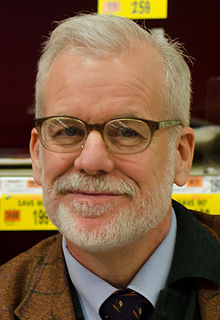A Quote by Ellen Key
The genius of happiness is still so rare. To possess it means to approach life with the humility of a beggar, but to treat it with the proud generosity of a prince; to bring to its totality the deep understanding of a great poet and to each of its moments the abandonment and ingenuousness of a child.
Related Quotes
We need to approach the Bible each day with a spirit of deep humility, recognizing that our understanding of spiritual truth is at best incomplete and to some extent inaccurate ... we should approach the Scriptures in humility and expect the Spirit to humble us even further as we continue being taught by Him from His Word.
Chosen soul, how will you bring this about? What steps will you take to reach the high level to which God is calling you? The means of holiness and salvation are known to everybody, since they are found in the Gospel; the masters of the spiritual life have explained them; the Saints have practiced them...These means are: sincere humility, unceasing prayer, complete self-denial, abandonment to Divine Providence, and obedience to the will of God.
From the standpoint of education, genius means essentially 'giving birth to the joy in learning.' I'd like to suggest that this is the central task of all educators. It is the genius of the student that is the driving force behind all learning. Before educators take on any of the other important issues in learning, they must first have a thorough understanding of what lies at the core of each student's intrinsic motivation to learn, and that motivation originates in each student's genius.
Occasionally there is a moment in a person's life when he takes a great stride forward in wisdom, humility, or disillusionment. For a split second he comes into a kind of cosmic understanding. For a trembling breath of time he knows all there is to know. He is loaned the gift the poet yearned for - seeing himself as others see him.
Some people may contend that there is no image more charming that a child holding a puppy or kitten. But for me that's a distant second. When I see a child clutching a book... to his or her tiny bosom, I'm moved. Children can possess a book in a way they can never possess a video game, a TV show, or a Darth Vader doll. A book comes alive when they read it. They give it life themselves by understanding it.
It is better to have but little knowledge with humility and understanding, than great learning which might make you proud. For a person's merits are not to be estimated by having many visions, or by knowledge of the bible, or by being placed in a higher position; but by being grounded in true humility, and by seeking always, purely, and entirely, the honor of God.
A novel which survives, which withstands and outlives time, does do something more than merely survive. It does not stand still. It accumulates round itself the understanding of all these persons who bring to it something of their own. It acquires associations, it becomes a form of experience in itself, so that two people who meet can often make friends, find an approach to each other, because of this one great common experience they have had.






































